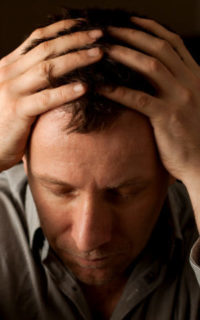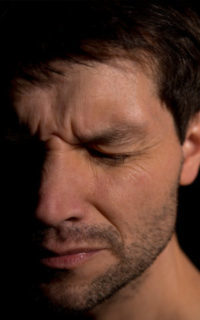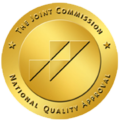Dual Diagnosis
Treating Addiction and Mental Health Disorders...Need Help
IMMEDIATELY?
1-888-934-7256
HELP US BETTER MEET YOUR NEEDS BY TELLING US A LITTLE MORE ABOUT YOURSELF

DUAL DIAGNOSIS

Dual Diagnosis Program at Palm Healthcare Company is designed to assist clients who suffer from a co-occurring disorder along with their chemical dependency. Clients learn about their problem (such as depression, bi-polar disorder or anxiety) and then learn the necessary coping skills to manage the problem.
Dual diagnosis refers to a condition where the patient has both a substance addiction coupled with a psychological disorder. A common example of this would be the combination of alcoholism and depression, which sends the patient spiraling out of control.
Emphasis is placed on the inter-relationship between the two conditions so as to lessen relapse potential for both the chemical dependency and the co-occurring disorder. Palm Healthcare Company dual diagnosis program clients are provided with an array of adjunct holistic services to help the symptoms and discomfort associated with the problem. Tai Chi, Yoga, meditation, nutritional counseling and Trauma Resolution are just some of the above referenced adjunct services that clients respond to extremely well.
Very often, treatment programs that are used for single addiction problems are wary of accepting patients who have dual conditions. This is because most rehabilitation centers tend to specialize in either substance abuse or psychiatric conditions, not usually both. When an addiction is combined with another real disorder, then treating the individual becomes more difficult. Studies have found that those with a dual diagnosis are more prone to violence and have a high suicide rate making them harder to help at drug treatment centers.
The best addiction treatment centers will treat not only the alcohol or drug addiction, but also any mental health disorders of the patient. It is often the case that a mental health disorder was the cause of or a significant factor in the development of the addiction in the first place. Those who suffer from bipolar disorder, anxiety or depression often turn to drugs and alcohol to “self-medicate” as a means of dealing with their symptoms. Mental health issues like depression need to be treated at the same time as the addiction, with individual and group counseling, in order to get to the root of the problem, and avoid returning to addiction.
Our treatment program cares for the addict as a whole person, and doesn’t just focus on a client’s addiction. Many addicts and alcoholics, as well as their families have experienced trauma in their lives. This trauma, if repressed, can lead to other symptoms and ultimately end in relapse. Our highly skilled and specialized clinicians use the most current methodologies to resolve all levels of trauma. Palm Healthcare Company is the leader in the successful treatment of Dual Diagnosis and Trauma in conjunction with the client’s recovery from chemical dependency.
Types of Mental Health Disorders

Depression
For anyone who has experienced depression, there is a noticeable difference between that deep and sometimes manic emotion versus a rational sadness. Depression is a mood disorder that most people know to be characterized by extreme bouts of melancholy, grief or despair. Depression can range from moderate to severe, and can make a definite impact on the way a person thinks, feels and behaves. Typically people with severe depression find it almost impossible to go about their day to day activities, or to find any type of joy. Many times people with depression will feel like life is not worth living and thoughts of suicide may persist as well.
Symptoms of Depression
- Helplessness and hopelessness
- Loss of interest
- Changes in weight and appetite
- Sleeping habits
- Anger or irritability
- Lack of energy
- Self-loathing
- Reckless behavior
- Trouble concentrating
- Unexplained aches and pains
- Thoughts of suicide

Bipolar Disorder
Bipolar disorder, which has also been referred to as manic depression, is a very serious mental disorder. It is most commonly characterized by intense and unpredictable swings in mood, behavior and energy. Someone with bipolar disorder experiences alternating “highs” (called “mania“) and “lows” (also known as depression), that can be brief, from just a few hours to a few days, or longer, lasting up to several weeks or even months.
Symptoms of Mania
- Feelings of hopelessness
- Moments of tremendous optimism and significant pessimism
- Grandiose feelings
- Rapid talking
- Little sleep
- Impaired judgement, irrational behavior
- Delusional behavior
- Hallucinations
Symptoms of Depression
- Feelings of hopelessness
- Loss of interest in things that used to make you happy
- Fatigue
- Changes in appetite – eating more or eating less
- Self-loathing
- Suicidal thoughts

Post Traumatic Stress Disorder (PTSD)
PTSD is a psychiatric disorder that can occur following the experience, or witnessing, of life-threatening events such as military combat, natural disasters, terrorist incidents, serious accidents, or physical or sexual assault in adult or childhood. Most survivors return to normal given a little time. However, some people will have reactions that don’t go away on their own or may even get worse overtime. These people may develop PTSD.
When someone has PTSD it can be hard for them to deal with their past and instead of telling others how they feel they keep it bottled up inside. There are specialized treatments for PTSD that will allow a person to target their trauma and begin to heal.
Symptoms of PTSD
- Nightmares
- Flashbacks
- Avoidance of things related to the events
- Severe anxiety
- Sleeplessness
- Aggressive behavior
- Angry outbursts

Anxiety
Anxiety is something that is pretty common. It only becomes a problem (an anxiety disorder) when it begins to occur frequently and interferes with daily life. Fears are our reaction to a present threat. It is how we cope with danger. Anxiety is anticipation of a threat. Almost 20% of the population is affected by an anxiety disorder. Usually when a person is suffering from an anxiety disorder, there is a chemical cause in the brain. When certain neurotransmitters get out of sorts, anxiety can reach a problematic level.
Anxiety is not the same as fear. Anxiety is the anticipation of an event that will cause fear. Anxiety is a general term for several disorders that cause nervousness, fear, apprehension, and worrying. Anxiety can affect how we act and can manifest in real, physical symptoms. Common anxiety disorders include phobias, panic disorder and generalized anxiety disorder. There are a lot of different factors that can contribute to an anxiety disorder. For this reason, anxiety disorders are often difficult to diagnose and treat.
Symptoms of Anxiety
- Pounding heart
- Sweating
- Shortness of breath
- Persistent worry or fear
- Restlessness
- Concentration problems
- Irritability
- Muscle tension
- Sleep disturbance

Schizophrenia
Schizophrenia has best been defined as a severe, chronic, and generally disabling brain and behavior disorder. Schizophrenia is also described as a psychosis, which is a type of illness that causes severe mental disturbances that disrupt normal thoughts, speech, and behavior.
Although schizophrenia can occur at any age, the average age of onset occurs in the late teens to the early 20’s for men, and the late 20’s to early 30’s for women.There may be additional disorders that accompany schizophrenia, which include substance abuse, post traumatic stress disorder, obsessive-compulsive disorder and/or major depression.
Symptoms of Schizophrenia
- False beliefs (Delusions)
- Unclear or confused thinking
- Hearing voices (Hallucinations)
- Reduced social interactions
- Flat emotional expression
- Disorganized speech
- Lack of motivation
NEED HELP IMMEDIATELY
Call
1-888-934-7256
Palm Healthcare Company
1177 George Bush Blvd.
Delray Beach, FL 33483
888-934-7256
Joint Commission accreditation and certification is recognized nationwide as a symbol of quality that reflects an organization’s commitment to meeting certain performance standards.



